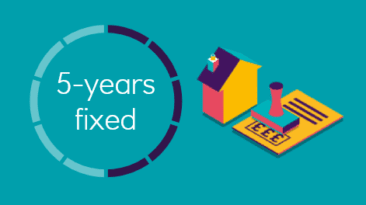Mortgage rates should always be taken into consideration when purchasing a home since lenders charge interest on home loans at various interest rates to determine the cost of borrowing. As part of making sure you obtain the most advantageous deal for your mortgage loan. Understanding their function and influences is paramount in finding an optimal plan to meet your borrowing needs.
What Are Mortgage Rates (PMI Rates)
Mortgage rates refer to the percentage of interest charged on home loans that borrowers must pay on top of the principal amount borrowed, in addition to any fees. They can either remain constant throughout a loan’s term or change according to market fluctuations and economic considerations.
Factors Impacting Mortgage Rates
Many factors come into play when setting mortgage rates; lenders carefully weigh various elements before offering rates to borrowers:
1. Economic Indicators
A range of indicators related to the state of the economy such as inflation, GDP growth, and employment rates can have an effect on mortgage rates – with stronger economies possibly leading to higher mortgage rates, while weaker economies might result in reduced ones.
2. Federal Reserve Policies
Monetary policies of the Federal Reserve, like altering its federal funds rate, have a direct influence over mortgage rates; when rates rise at the Fed, mortgage rates often do too.
3. Credit Score
Lenders view those with higher credit scores as being less risky borrowers and often qualify for lower mortgage rates when compared with borrowers with lower scores.
4. Loan Terms
The length of time your loan lasts–such as a 15- or 30-year mortgage-can influence its interest rate; generally shorter terms come with reduced rates.
5. Down Payment Size
A larger down payment may result in a lower loan-to-value (LTV) ratio and thus reduced risk to lenders, and therefore result in more desirable loan rates.
6. Loan Type
Different kinds of mortgage loans such as conventional, FHA, and VA come with differing interest rates depending on their specific terms and requirements.
How to Achieve Competitive Mortgage Rates
Acquiring competitive mortgage rates takes hard work and consideration of various factors:
1. Increase Your Credit Score
Take steps to enhance your credit score by paying bills on time, lowering debt payments, and correcting any errors on your report.
2. Research Your Options
To secure the lowest mortgage offer possible that meets all your needs and expectations, compare rates and terms offered by various lenders to identify which are most advantageous to your needs.
3. Evaluate Points
Points, also referred to as discount points, can help reduce interest rates over the loan term by being paid upfront in an effort to bring down rates over time. Evaluate whether paying points makes financial sense in your situation.
4. Lock In Your Rate
Consider locking in your mortgage rate as soon as you find an attractive offer to protect yourself against potential fluctuations.
5. Examine Loan Types
Research different loan programs and loan types until you find one that best matches your goals and circumstances.
FAQs About Mortgage Rates
What Makes for an Attractive Mortgage Rate?
An ideal mortgage rate depends on market conditions and personal financial situations; generally speaking, rates below the national average can be considered favorable.
Should I Select an Adjustable-Rate Mortgage or Fixed?
Choose either a fixed- or adjustable-rate mortgage depending on your risk tolerance and anticipated duration in your new home. Fixed rates provide stability while adjustable-rate mortgages (ARMs) offer initial lower rates that adjust as time goes on.
How Can I Negotiate Mortgage Rates with Lenders?
Yes, mortgage rates can be negotiated with lenders. In order to do this successfully and take full advantage of competing offers.
When should you apply for a mortgage to ensure getting an excellent interest rate?
Mortgage rates fluctuate frequently, so it can be challenging to identify an optimal time and date to submit an application. By monitoring economic indicators and working with an experienced lender, however, strategic timing will become possible.
Can Mortgage Rates Vary Daily?
Yes, mortgage rates may change daily or multiple times daily, depending on market conditions and other considerations.
Can I Refinance to Secure a Lower Mortgage Rate?
Yes, refinancing offers you the ability to replace your current mortgage with one with potentially better terms, possibly saving on interest costs in the process.
Conclusion
Mortgage rates play an integral role in homebuying, having an enormous effect on the overall costs of your dream house. Before embarking on your homebuying journey, take time to research mortgage rates in depth, including all their influencing factors and how best they apply to you personally – this way, making an informed decision aligns with long-term goals while creating an effortless path toward homeownership.





Add comment